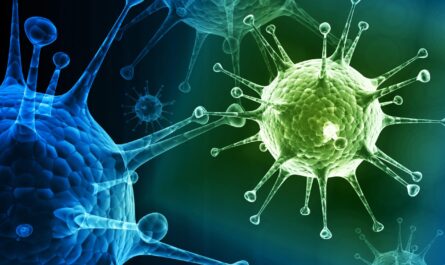The age-related hormonal changes that occur in both men and women are a natural part of the aging process. However, the experience of these changes differs between the genders. While women go through a more pronounced hormonal decline during menopause, men experience a gradual decline in their sex hormones. This phenomenon is often referred to as male menopause.
In women, menopause signals the end of their menstrual cycles due to the natural decline in reproductive hormones, surgical removal of the ovaries, chemotherapy or radiation therapy, or a condition known as primary ovarian insufficiency. The process of ovulation ceases, and hormone production decreases over a relatively short period of time.
In contrast, men undergo a gradual decline in testosterone and other hormones over many years, and the consequences of these changes may not be immediately apparent. This gradual decline in testosterone levels is referred to as late-onset hypogonadism or age-related low testosterone. On average, a man’s testosterone levels decrease by around 1% per year after the age of 40. However, it is important to note that the majority of older men still have testosterone levels within the normal range, with only an estimated 10% to 25% experiencing low levels.
Low testosterone levels in older men often go unnoticed as they may not exhibit any noticeable symptoms. While testosterone levels can be measured through a blood test, routine testing is not commonly done. Furthermore, many men with low testosterone levels do not experience any symptoms. Additionally, the signs and symptoms associated with low testosterone are not specific to this condition and can be caused by other factors such as age, medication use, or other underlying conditions. Common symptoms include decreased energy, motivation, and confidence, depressed mood, poor concentration, increased sleepiness, sleep disturbances, mild anemia, reduced muscle bulk and strength, and increased body fat.
Experts recommend testing older men for low testosterone only if they exhibit signs or symptoms. If an initial test shows low testosterone, the test should be repeated to confirm the results. In cases of confirmed low testosterone, further testing of the pituitary gland is recommended to determine the cause and rule out other hormone deficiencies. The pituitary gland, located at the base of the brain, plays a crucial role in hormone production and regulation.
Recommendations for testosterone therapy in men with age-related low testosterone vary among medical professionals. The American College of Physicians recommended considering testosterone treatment for men with sexual dysfunction who want to improve their sexual function, after explaining the potential risks and benefits. The Endocrine Society, on the other hand, recommended testosterone therapy for men with age-related low testosterone who have signs and symptoms associated with low testosterone. Some experts also suggest offering testosterone treatment to men with age-related low testosterone even without apparent signs or symptoms.
If a man decides to undergo testosterone therapy, his healthcare professional will explain the various methods of testosterone administration, target levels, and follow-up testing. While testosterone therapy can alleviate bothersome signs and symptoms of testosterone deficiency in some men, its benefits may not be clear for others, and there are potential risks involved.
It is important to note that further research is needed to fully understand the effects of testosterone therapy. Studies suggest that testosterone therapy might stimulate the growth of metastatic prostate and breast cancer. Additionally, testosterone therapy may increase the risk of heart attack, stroke, and blood clots in the veins.
Healthcare professionals generally advise against starting testosterone therapy for men who plan to conceive in the near future or those with conditions such as breast or prostate cancer, untreated severe obstructive sleep apnea, uncontrolled heart failure, thrombophilia, or those who have recently experienced a heart attack or stroke.
If you suspect that you might have low testosterone, it is recommended to discuss your signs and symptoms with your healthcare team. They can provide information about testing and potential treatment options, and help you assess the pros and cons of treatment.
*Note:
1. Source: Coherent Market Insights, Public sources, Desk research
2. We have leveraged AI tools to mine information and compile it



